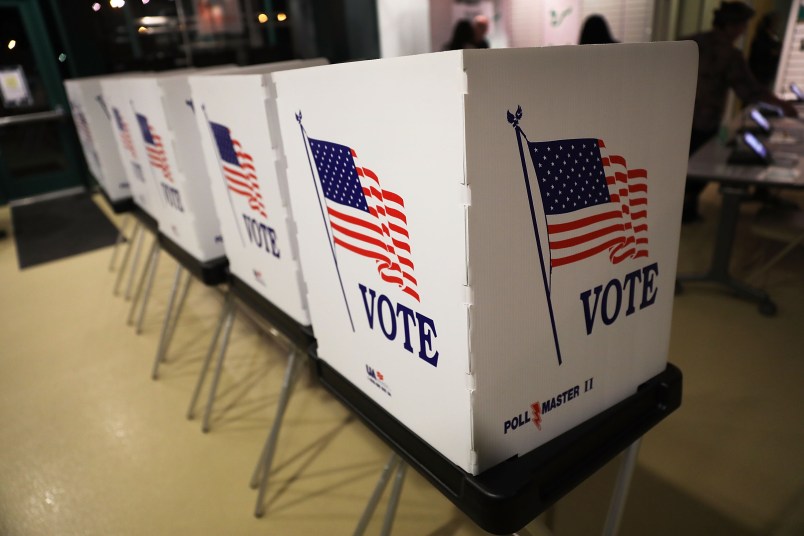In a triumphant victory for voting reform advocates, Florida voters on Tuesday passed a ballot amendment to restore voting rights to 1.4 million residents with felony convictions.
Amendment 4, a high-profile measure explored as part of TPM’s “Retreat From Democracy” series, passed, according to projections from CNN and NBC News.
The measure’s passage has huge implications given that most state-wide elections come down to just a point or two.
The amendment, which was supported by groups like the American Civil Liberties Union, had polled well in surveys, earning well over the 60 percent required to pass. It faced little organized opposition.
The Florida Rights Restoration Coalition, the main group behind the amendment, ran a surprisingly successful campaign in the crime-obsessed, purple state. Instead of making a case on racial or partisan grounds, the group urged voters to think of neighbors, friends and family members who had felony convictions, using the slogan “when a debt is paid, it’s paid.”
Florida was one of four states with a constitution that permanently disenfranchises residents with past felony convictions.
In 2011, Gov. Rick Scott instituted a policy requiring any Floridian convicted of a felony to endure a waiting period of at least five years after completing all aspects of their sentences, including parole or probation and paying fines. They could then apply to the state to get their rights restored, but the decision was up to a four-person clemency board headed up by Scott.
Under the new system, residents will automatically get their right to vote back after they complete their sentences, with exceptions for people convicted of murder and felony sex offenses.







Good, let ’em vote right now!
Fantastic!!! I hope this bodes well for Gillum, too…
If Scott and DeSantis win tonight, they should enjoy it while they can. Might be the last statewide races Republicans win for a while in Florida.
Count on the GOP putting a lot of effort into developing ways to subvert & obstruct the implementation of this.
Nelson is behind in Florida with 7% of precincts out. This blows. Going for a long walk. Gonna be a long night.